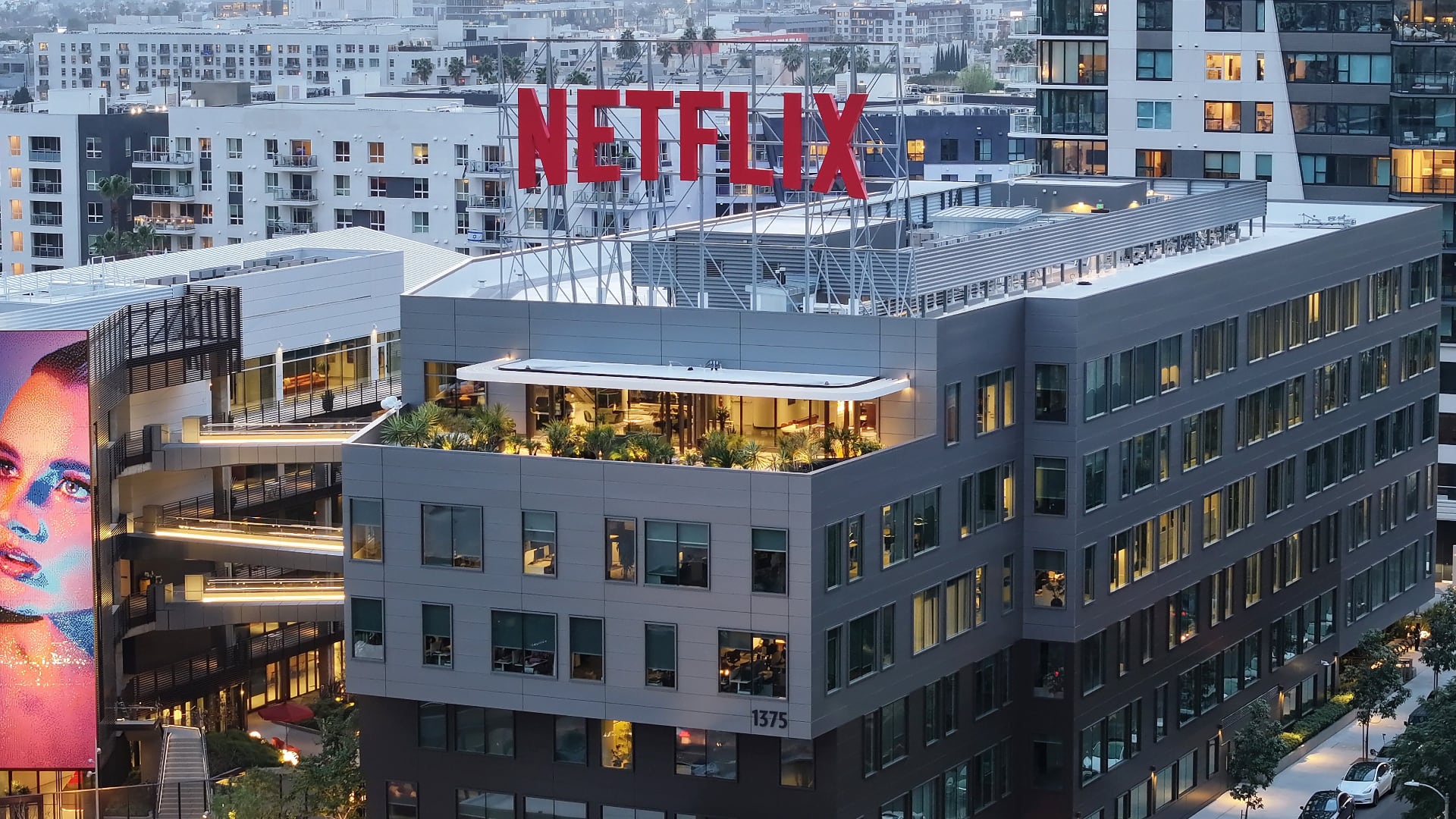Here’s a quick look at who President-elect Donald Trump is putting in charge of the U.S. economy and business:
- Health and Human Services: Robert F. Kennedy, Jr., the one-time environmentalist and current anti-vaxxer, who told the world part of his brain had been eaten by a parasite, will oversee the U.S. government’s control of health care. Kennedy has said he wants to halt research on new drugs and focus on making America Healthy Again. It’s not clear what this means for the health care world, but if the feds stop subsidizing vaccines, that could be bad for big pharma, insurers, hospital chains.
- Federal Communications Commission: Brendan Carr, a member of the five-person commission and an author of the Project 2025 report, has outlined plans to remove regulations that conservatives consider overbearing or outdated, wants to lift curbs on ownership consolidation, and pull back limits on free speech, even hate speech. He’s also promised to be a friend of Elon’s and give StarLink even greater access to federally owned airwaves. He’s simultaneously anti–Big Tech and wants to ban TikTok.
- Commerce: Howard Lutnick, the head of Cantor Fitzgerald, a small trading firm and investment bank that gained fame in 2001, when most of its staff were killed in the attacks on the World Trade Center. Lutnick is a proponent of replacing income taxes with tariffs.
- Energy: Oil industry executive Chris Wright, CEO of Liberty Energy, is a fracking enthusiast and a climate change denier. Trump is counting on him to push for more drilling and more exports of oil and natural gas. Wright has said he sees no link between fossil fuel use and a warming planet, and has called for “energy sobriety.” “There is no climate crisis, and we’re not in the midst of an energy transition either,” Wright said in a video uploaded to LinkedIn.
- Treasury: It’s all speculation, but the battle to be the senior steward of the U.S. economy is shaping up to be a Mar-a-Lago “Game of Thrones.” Before he was named commerce secretary, Lutnick was apparently jockeying for the post against hedge fund manager Scott Bessent, who broke the Bank of England three decades ago when he worked for Trump’s archenemy George Soros. Bessent is lauded as one of the smartest people on Wall Street, but detractors say his Key Square Capital Management has lost money in five of the last seven years. Everything that comes out of the Trump transition is whispers and rumors, but the discord has reportedly pushed Trump to add more contestants. Press reports say contenders include: Kevin Warsh, a former Federal Reserve governor; Marc Rowan, chief executive of Apollo Global Management; Tennessee GOP Senator Bill Hagerty; and Robert Lighthizer, the combative U.S. trade representative in Trump’s first term.
Watch Big Business This Week on Cheddar—and YouTube!
Splitting Google
After a federal judge in Washington, D.C., ruled in August that Google had engaged in illegal monopolistic practices by paying companies such as Apple to make Google the prime search engine for both its own Safari browser and for Google’s own Chrome browser, the Justice Department has weighed in with its proposed remedy to end Google’s monopoly and let other search engines angle for a piece of the market. The solution: Google must spin off Chrome into a separate company and sell it.
“The playing field is not level because of Google’s conduct, and Google’s quality reflects the ill-gotten gains of an advantage illegally acquired,” the Justice Department said. “The remedy must close this gap and deprive Google of these advantages.”
No word yet on who’d buy it, but the most likely outcome is either Elon Musk (after all, what’s the point of being the richest bro on the planet if you can’t just buy anything you like?) or an IPO, offering shares to the general public (and lots of investment banks and funds).
Google’s top lawyer called the DoJ’s recommendation a “wildly overbroad proposal” that goes “miles beyond the Court’s decision,” and said Google parent Alphabet would be back in court in December with its own plan.
Elon’s World
Stepping into the orbit of the future president may be a little more complex than Elon Musk first realized: Two Democratic senators are asking the Pentagon and the Justice Department to investigate Musk’s reported contacts with Russian President Vladimir Putin and other top Russian officials in recent years, as well as a reported hour-long meeting with a top Iranian diplomat. Private individuals are barred by the Logan Act from conducting diplomacy on behalf of the U.S. government. • Musk and Vivek Ramaswamy—the former presidential candidate who Trump said “is not MAGA,” and who Chris Christie says “sounds like ChatGPT”—have published their manifesto for DOGEing the federal government. The basic premise is that all the agencies the executive and legislative branches set up to turn Congress’ laws into effective rules are fake government. Those rules, as Michael Lewis wrote in his book “The Fifth Risk,” are intended to keep Americans safe from, say, busted airplanes and stock scammers. • On Saturday Night Live, Weekend Update anchor Michael Che noted that Musk and his future employees at D.O.G.E. will be working 80-hour weeks for no pay. “You can’t be surprised that the white African guy’s first idea is slavery,” Che said. • xAI said this week that it’s raised $5 billion in a funding round that values the company at $50 billion—double its valuation several months ago. Who’s buying into the as-yet-unproven tech that Musk wants to use to power everything from Twitter to Tesla cars and more? Some familiar names, including the Qatar Investment Authority, Valor Equity Partners, Sequoia Capital, and Andreessen Horowitz, The Wall Street Journal reports. • Despite the cash influx, Musk is suing his AI competitors and late last week made new antitrust claims against OpenAI, Microsoft, and investor Reid Hoffman. He also accused OpenAI founder Sam Altman of “rampant self-dealing.” Musk’s suit goes back to February, when he alleged Altman violated OpenAI’s founding agreement by turning the company into a for-profit firm, instead of an open-source code to benefit humanity. Ahem. • Has Elon outfoxed Rupert Murdoch? That’s what Vanity Fair’s Clive Irving says, noting that Murdoch and Fox News went all in on Trump this fall, after Murdoch’s New York Post previously declared Trump unfit to govern. But now, notes Irving, after spending $200 million and stuffing X with fake news and deepfakes supporting Trump, Elon Musk is Donald’s self-described First Buddy, and Rupert is cooling his heels at the front door. The issue: Fox was no use expanding Trump’s base beyond the Fox footprint, but Elon used X to power The Donald to Victory. • Elon and Jeff Bezos are trying to put an end to unionizing. Both Space X and Amazon want a court to declare illegal the National Labor Relation’s Board, saying its makeup is unconstitutional because a congressional agency can’t act like an agency of the executive branch. The kerfuffle began in January when the NLRB accused SpaceX of illegally firing employees who’d dared to criticize Musk in an open letter. The case is now being heard by a federal appeals court. • Brazil’s first lady, Janja Lula da Silva, wasn’t shy in sharing her feelings about Musk, whose X (Twitter) was suspended in Brazil for a month for ignoring orders from the country’s Supreme Court to block accounts spreading fake news. Speaking at the opening of a G20 summit in Rio, she said: “I’m not afraid of you, f--k you, Elon Musk.”
Get Big Business This Week in your inbox every week—and read it before everybody else! Sign up today.
The Usual Suspects
- A Boeing Blast: New CEO Kelly Ortberg is pissed, and he’s been telling Boeing’s 100,000+ workforce that it’s time to stop bickering and get back to work. “We spend more time arguing amongst ourselves than thinking about how we’re going to beat Airbus,” Ortberg said at an all-hands meeting, according to a recording reviewed by The Wall Street Journal. “Everybody is tired of the drumbeat of what’s wrong with Boeing. I’m tired of it and I haven’t been here that long.” Boeing is burning up cash after production delays and safety issues with its workhorse 737 planes and a two-month strike by the machinists who build them. Boeing last month sold $24 billion in new shares to get itself through the current turbulence. Ortberg said Boeing won’t turn cashflow positive until it ramps up 737 production to 38 planes a month, and there’s no shortage of orders — Boeing has a nearly 10-year backlog of jet orders. But he also said the company doesn’t have the cash to develop a next-generation plane, one that airlines are thirsting for.
- Off Target: Shares in the red-dotted retailer fell 21% on Wednesday after profits fell short of expectations set by the company and Wall Street analysts. Q3 sales were flat, and Target execs have now lowered their expectations of a a Santa-fueled sleigh ride to prosperity this Christmas season. The chain’s been promoting its own brands and cutting prices, but that hasn’t been enough, as the post-pandemic consumer buying binge has come to a halt. And it didn’t help that Target used a lot of cash to build inventories ahead of what it thought would be a crippling strike by dockworkers at U.S. ports. But the biggest problem is customers. “Overall, we are still seeing a consumer shop very cautiously in discretionary categories,” said CEO Brian Cornell.
- Raising the Wal: Meanwhile, Walmart saw its stock rise 3% Tuesday, after reporting that U.S. sales grew in Q3 as shoppers flocked to its expanding grocery business along with home goods and toys, and the company raised its forecast for Q4, which includes Black Friday and Christmas.
- NBCU Later! NBC parent Comcast says it’s spinning off most of NBC Universal’s entertainment and news channels, including MSNBC, CNBC, USA, Oxygen, E!, Syfy, and the Golf Channel. They brought in about $7 billion in revenue in the 12 months ending in September, Comcast says. Broadcast, TV, sports, movies, theme parks and the Peacock streaming service will remain in Comcast. The thinking is that cord-cutting is hitting revenues at the cable networks, and the company will be stronger without that strain.
The Short Stack
- That’s a lotta dough: Sandwich maker Jersey Mike’s has agreed to sell itself to Steve Schwartzman’s Blackstone private equity firm for $8 billion. That makes founder Peter Cancro America’s newest billionaire. Cancro began working at the original Mike’s Sub’s in 1974, and bought the place in 1975, when we was 17. Today Jersey Mike’s has 3,000 franchises open or “in development,” the company said.
- The wages of avarice: Remember Bill Hwang, who founded a family office that grew to be worth $36 billion and then lost it all in a stock manipulation scheme back in 2021? On Wednesday a federal judge in Manhattan sentenced him to 18 years in jail for the scam that blew up Archegos Capital Management. At the heart of it all: fake valuations that got banks to lend him billions for trading. Morgan Stanley, UBS, and Japan’s Nomura bank took a bath. Goldman Sachs escaped unscrubbed. Meanwhile, Gary Wang, the cryptocurrency executive who unwittingly wrote the computer code that helped Sam Bankman-Fried steal some $8 billion from customers of his now-bankrupt crypto exchange, was spared prison time by a judge.
- No fair and balanced voting for News Corp shareholders: Rupert Murdoch and his family get to hold onto their outsize voting rights at News Corp, the company that owns Rupert’s U.S. media properties, including Fox News. Murdoch and four of his children control the $15 billion company through a family trust that holds about 14% of the company’s equity but has 41% of the vote. Shareholders, presumably including the Murdochs, voted down a plan by activists to change the rules to one share, one vote.
- Cryptic exchange: Donald Trump’s Trump Media and Technology Group, the parent of the flailing Truth Social platform, is in advanced talks to buy a crypto exchange called Bakkt. Bakkt shares soared 162% after news of the talks broke. Trump media shares gained more than 16%.
Dispirited
Spirit Airlines, the troubled discount airline, filed for bankruptcy protection in a New York court this week, after struggling with rising costs, competition from larger airlines, and a $3.6 billion debt overhang. Shareholders will be wiped out under the plan, and creditors will take control of the airline. The most likely outcome is a sale to Frontier, the rival low-cost carrier that has been in an on-again, off-again relationship with Spirit, says Dan Bubb, a former airline pilot and now a historian of aviation at the University of Nevada at Las Vegas Honors College. Spirit’s already furloughed more than 300 pilots, sold some planes, and has others stuck on the ground because of engine problems. Airline experts say it’s unlikely Spirit will fly solo after the bankruptcy proceedings are complete in March.
The Chapter 11 filing will let Spirit continue to fly, and creditors have given it a $300 million loan to tide it through the process. Spirit may have been doomed from the start, because low-cost carriers have no cushion, said Bubb. “It’s great that you compete and offer lower fares, but how is Spirit going to make a profit when the majors, like Delta and United, make their money on business and transatlantic flights,” said Bubb. Without those “bread and butter routes,” he added, Spirit just wasn’t capitalized enough to ride out rough patches. “You have to have the money to stay in big,” said Bubb, “or you end up where Spirit is.”
Peter S. Green is a veteran reporter and editor who has spent more than two decades covering business and finance from Eastern Europe to New York City, and has worked for Bloomberg News, The New York Post, The New York Times and The Messenger. He lives in New York City and is always looking for the next big story.













